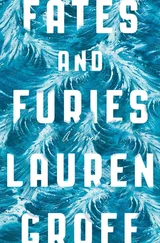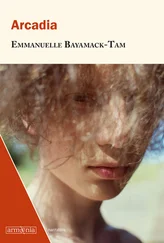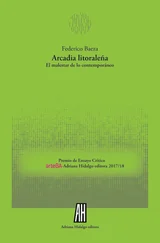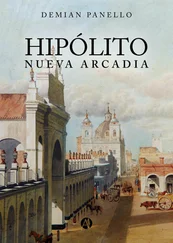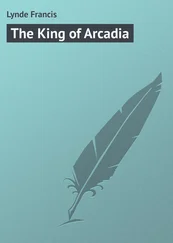Bit has stopped looking for Helle. He never stops looking.
There is a hole in his life where Helle had been, a vacuum. Yet, for years afterward, Bit finds her. For a glimmering breath, he finds an astonishment of Helle that crumbles into dust when he looks harder and she is gone again.
He finds her at home, in her bed, where she had been all this time, waiting for him: white sheet undraped from her chest, bare nipple in the daylight. Where have you been? she says, voice humid with sleep. I’ve been waiting for you.
He finds her in a graduate student bar. He is buying his MFAs a round of beer. Her hair is hennaed; she wears black leather and walks past him, her face a blade, and out the back door.
He finds her one night as he shuts the window against a storm and a woman in a clear plastic trench coat runs across the street, the knobs of her spine vivid under her silk blouse, her white hair plastered to her cheeks; and when he runs out into the torrent to chase her, she is gone, and the bum on the vent insists there was nobody there at all.
He finds her in the hospital in Thailand, after he brushes up against a stonefish on a dive and goes into toxic shock, and dies there on the table, and is being restarted; just after the electric pulse, he sees, above the doctors’ heads, Helle’s face silhouetted against the light, a halo, a spherical aberration; and then she moves and her face shifts into that of a nurse, pale and old and thin and smiling gratefully at him for being alive.
Mostly, he finds her in his daughter. He carries Grete from a child’s party to her room, and pulls up the coverlet, and when he turns out the light and closes the door and waits there, resting his head against the wood, he knows Helle is there, inside, sleeping. She is in Grete’s face as she grows. Her fat melts away and her mother’s cheekbones emerge and those same gold-flecked eyes grow complex; Helle is in Grete’s voice as she looks at him and puts her head on his shoulder and says, Oh, Dad, why are you crying? His daughter, a gentle girl with plenty of Bit in her also, laughs up at him, saying, You’re always crying, Dad. Why are you always crying?
Garden of Earthly Delights
At the end of a sunset party in an apartment overlooking the city, when the Sibelius has given way to the ambient Icelandic rock of their late youth, when the goat cheese canapés and stuffed mushrooms have cooled to the sticky consistency of kindergarten paste and everyone has had enough of the sour local wine from the city’s rooftop vineyards to be mildly drunk, Bit finds that something in the air subtly shifts; a certain hilarity effervesces out of the partygoers and they pair themselves into odd couples, draped on the sofas or leaning against the doors, sharing the deeper secrets of their lives.
A woman stands before Bit, tall, her sparse eyebrows filled in with what looks like ash. Oh, I loved him, she says, her face gleaming with the beauty she must have had in her twenties. He lived in Venice. He was married. We met on a vaporetto. Her lips go soft, remembering.
Bit bites back what rises to his tongue: poor half-drowned Venice with its overwhelmed pumps. Poor Micronesia, poor Tuvalu, lost Atlantises. Instead, he nods. The woman’s face sags into the present. She winces and kisses his cheek and disappears into the crowd for more wine.
Bit presses his back against the glass wall to watch the party. His friends are lit in orange from the sun going down over the river. Dylan raises his wineglass to Bit across the room, and the liquid slides red against the curve, catching the light. Pooh, whose apartment this is, laughs so hard she has to put her drink down on a side table and dab at the corners of her eyes with her tiny white hands. Cole touches the chandelier with a finger, frowning thoughtfully. A half a century of life has creased his friends’ faces with wrinkles and made their bodies go soft around the middle, yet there lives a sympathy so deep in their marrow that a single word spoken by a stranger can spark the same light in each. A woman calling out. . trip? ; and they think Trippies, skinny Kaptain Amerika in his flag sarong. Someone saying the word pure ; and before them rises a phantom silver Sugarbush, sap ringing musically into tin pans.
He thinks of the rotten parachute they played with as kids in Arcadia: they hurtle through life aging unimaginably fast, but each grasps a silken edge of memory that billows between them and softens the long fall.
For a breath, Bit can hardly bear the love he has for his friends. He goes out onto the balcony in the cold blast of air and watches the people move, perfect and tiny, on the street below. He imagines them all young, the men shouldering down the street, holding their excitement for the evening in their guts, the women with their high heels tapping codes. He thinks of Grete earlier, heading out to be with her friends, pausing in the dim hall of the brownstone to check her makeup in the pier glass, to touch her pink braids, to smile at herself as she turns toward the door. Contentment rises like a warm wave and dissolves just as it breaks over him.
He walks home through the quiet city until the party’s buzz clears from his head. He finds himself looking for stars he knows he won’t see. It is after midnight, and Grete still isn’t home. The brownstone folds itself around him. The long windows are open, and a cold spring gust comes in. To stave off bad images of his daughter lost somewhere in the city, he tries to read poetry, an anthology of 2018’s selected best. Poetry is what he turns to these days, finding in its fragmentation the proper echo of the disintegrating world. But tonight, in the strange slackness that arose in him after the party, he can’t concentrate on words.
He reaches for Grete’s e-reader, turns to the news for company. But there is a viral epidemic in Indonesia, the grave blond newscaster says, a sudden airborne event. Bit turns it off.
The monster is peering in the window. The ice caps have melted, the glaciers are nearly gone; the interiors of the continents becoming unlivable, the coasts so storm-battered people are fleeing by the millions. New Orleans and the Florida Keys are being abandoned. The hot land-bound places are being given up for lost; Phoenix and Denver becoming ghost towns. Every day, refugees show up in the city. A family takes shelter in the lee of Bit’s front steps, parents with two small children, silent and watchful. They arrive after the lights are off in the brownstone and are gone by morning, their only trace the wet concrete from their hose baths. He leaves food for them in a cooler. It is all he can do. As ever, his kind is frozen by the magnitude of the problem; the intentionally ignorant still deny that there is a problem. Bit spends little of his salary, saving for the future, when, he knows, the well off will survive. Abe took a month last year to outfit the basement with food and water and gear. There is a gun waiting for Bit down there, and at times like these, Bit can feel the weight of the Ruger in his hands, a comforting counterweight against the eventual.
During the bad nights, when deep sadness threatens to descend again, although he is ashamed at his selfishness, he pleads: Let Grete survive. Just let Grete make it.
On the street, a trickle of rats moves silver in the moonlight. The clock chimes two. Someone is singing a song that filters to him through plaster and lath and brick. At last, Grete’s steps come, uneven on the pavement. She looms into view, disappears in the cup of shadow between streetlights. That skirt so shameless, that top held on by strings, that face moonlike in its cake of makeup. His relief ebbs as she climbs the steps and is replaced with a low anger. She is only fourteen. He opens the door to find that she is already crying.
Читать дальше
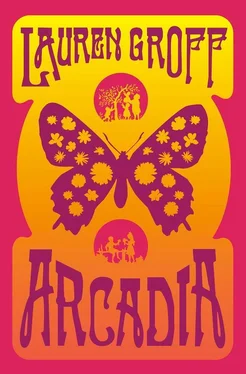
![Andrea Höst - In Arcadia [Touchstone - Extras]](/books/56405/andrea-host-in-arcadia-touchstone-extras-thumb.webp)

